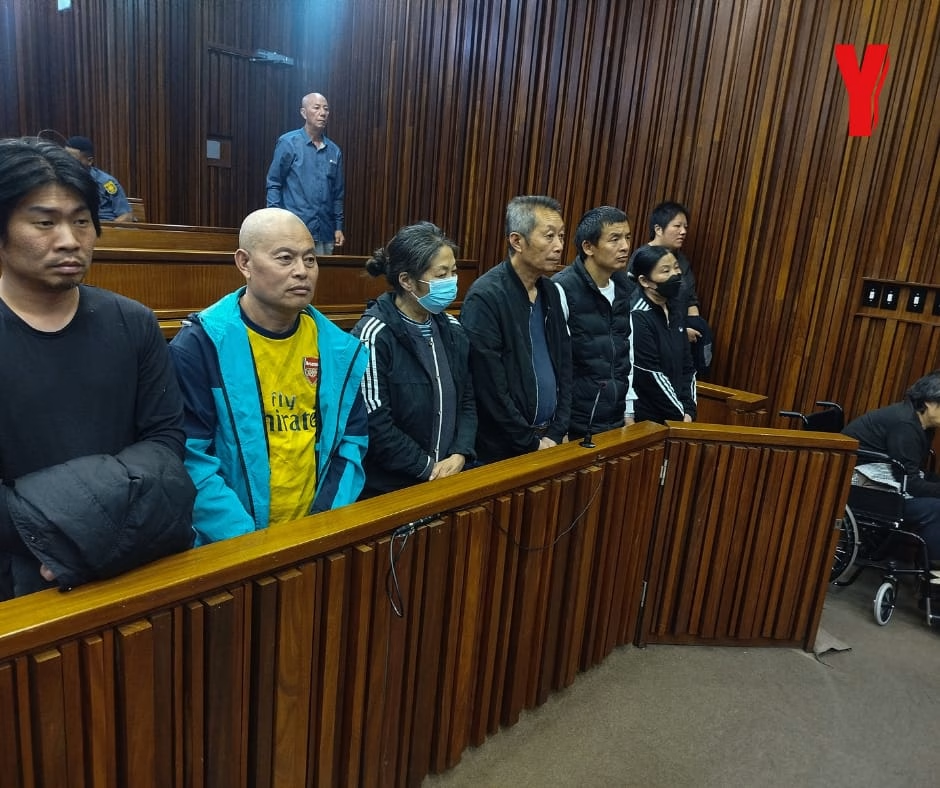
Seven Chinese Citizens Sentenced to 20 years for Trafficking, Child Labor in South Africa. Image: YFM.
(The Post News)– The South Gauteng High Court today sentenced seven Chinese nationals to 20 years in prison for human trafficking. The group, arrested in November 2019, was found guilty of 160 counts, including violating labor laws and contravening the Immigration Act.
The charges stem from a 2019 police raid on a business named Beautiful City (PTY) LTD, located in Village Deep, Johannesburg. The operation uncovered a horrific scene where Mozambican and Malawian nationals, including minors, were being held and illegally exploited. They were forced to live and work under inhumane conditions, with the business failing to register with authorities, maintain financial records, or provide a safe working environment.
Children Found During Human Trafficking Raid
While the seven accused received lesser sentences for other counts, the primary charge of human trafficking resulted in a stiff 20-year prison sentence for each. The court found them guilty of holding multiple illegal immigrants, including children, on the locked premises of their business.
Following the sentencing, the group announced their intention to appeal the conviction and sentence. In an interview with ENCA, Nancy, the daughter of accused number five (a 64-year-old woman), expressed outrage at the court’s decision. She called the verdict “ridiculous” and maintained her mother’s innocence, stating she fears her mother will not survive in prison.
Daughter Defends Mother from Human Trafficking Conviction
Nancy alleges that the case is a lie and that the real “big boss” is a Chinese national with a gun-related background who is currently running a business in Johannesburg. She claims that her mother and the other convicted individuals were merely taking orders from this powerful figure, who has a history of intimidating the Chinese community in Johannesburg. According to Nancy, the silence from the community is a result of their fear of being killed.
She admitted that the workers were indeed treated badly but insisted that the idea and the orders came from the main boss, not the seven people convicted. She said that while the seven may have had some power over the workers, they were ultimately subordinates to a much larger operation.



